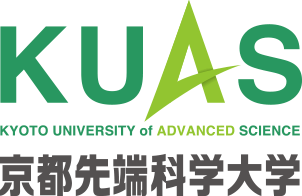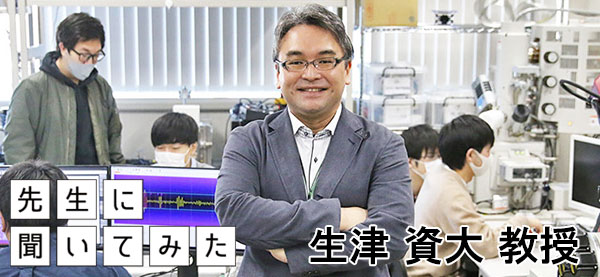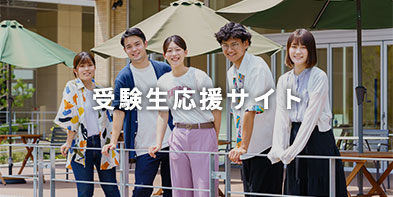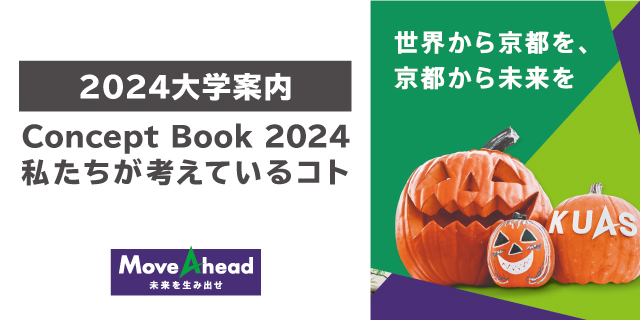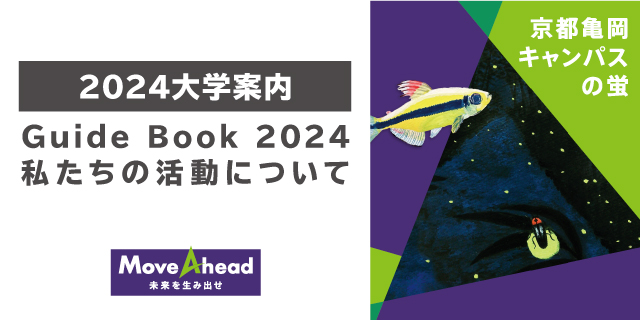院生に聞いてみた
本学工学研究科で材料の分野で活発な研究を続けている生津研究室所属の修士2年の木野智仁さん、上町真梧さん、児玉健太さん、熊切悠雅さん、安藤弘道さん、そして1年の安木大恭さんの6名の院生にお集まりいただき、本学の特色や自身の研究など幅広く語りあっていただきました。
先生に聞いてみたはこちら
ナノ材料の物性や機能を独自技術で解明する
一人前の研究者である前に人として
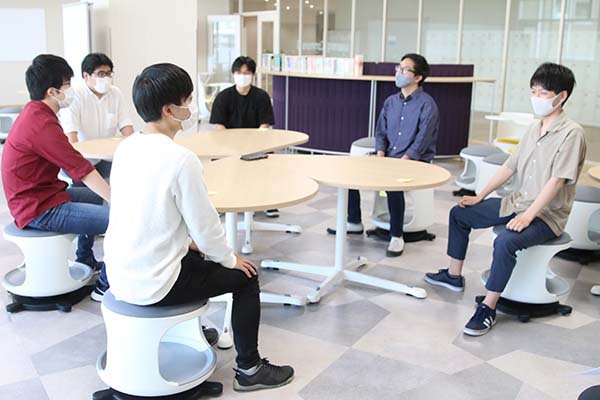
司会者:皆さんが本学の工学研究科に入った理由を教えてください。
生津先生に指導を受けたいと思ったことが一番の理由ですね。結構ほかのみんなも同じような考えを持っているのではないでしょうか。
一同:そうですね。
司会者:それでは生津先生の指導の魅力って何でしょうか。
研究の進め方、物事の進め方、要点を絞ることなど、自分たちに不足しているスキルを的確に指摘していただき、改善を促してくださるところでしょうか。
生津研究室では、毎週土曜日に研究発表ミーティングを行っています。一日拘束されますが、先生の指摘を通して自分にまだ足りないところを確認でき、また自分の発表を通して伝える力を学べたということは大きく、研究室に配属される前に比べ相当レベルは上がったのかなと思っています。
高専に7年間在籍していた私にとっては、高専の先生とはどこか知った仲という感じで甘えがあったと思います。生津研究室のもとで研究を行っていると、確かに生津先生の要求水準は高くて、正直、手強いなという印象を持っています。
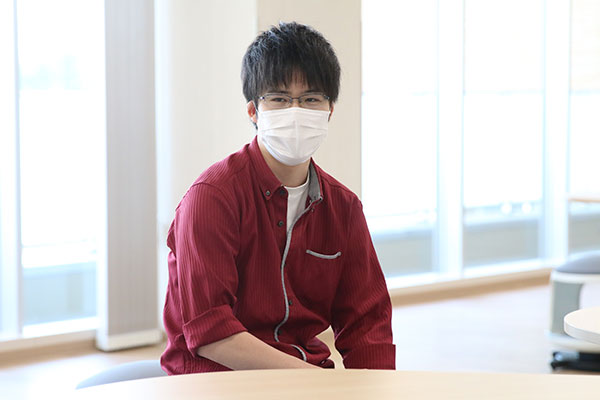
学部生時代に比べ、先生の指導の強さ、熱意が一層増して、指摘されるところも増えたのですが、指摘されたことに対し、自分なりに考え、研究で改善していくことで、自分の成長に繋げられていると実感しています。
先般、日本機械学会マイクロ・ナノ工学部門「優秀講演論文表彰」を受賞しました。これは、先輩の研究を引き継いで発展させたもので、それまでの先生のご指摘や、学術的な考え方に感化された結果、受賞できたと思います。
材料の知識をはじめ、先生の研究分野の知識が非常に深い。自分なりに調べて発表しても、さらに深いところを指摘され、その度に自分の知識はまだ足りないなと感じ、もっと調べて行く必要があると反省しています。こうした経験が、社会人となった時、役に立つのではないかと感じています。
材料領域の仲間と切磋琢磨
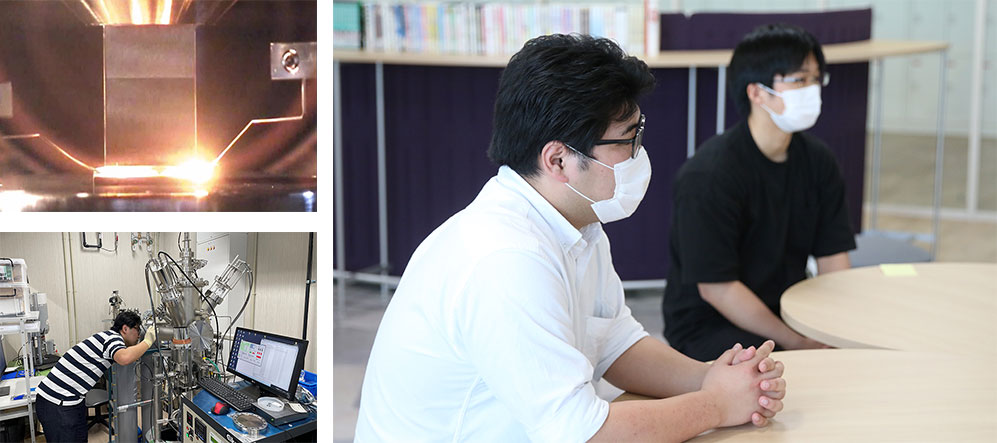
司会者:それでは次に皆さんが取り組んでいる研究内容について教えてください。
私は発熱材料の開発です。基本的に、金属2種類が反応して発熱して接合します。今までみたことがなく、面白いなと思いました。
私はナノ粒子を多孔質にして、それに発熱機能を持たせるという研究を行なっています。きっかけは、学部4年の時のナノ粒子の銀に興味を持ち、接合体を用いた破壊メカニズムを研究しましたが、大学院生になってからは破壊ではなく、作る方をやりたいと考えたことです。相当根性がいる実験ですが、それだけに出来たときの喜びは大きいです。
ナノ材料でも世界中で関心を集めているカーボンナノチューブの物性評価の研究をしています。
私はSi関係の研究をしています。新しい材料ではなく、今の半導体に当たり前のように使われているSi酸化物にあえてダメージを入れてその破壊をコントロールすることで、半導体やその他のSiを使う分野で新たなSiの使い方を提案できるような研究をしています。
研究者として求められる能力が磨ける
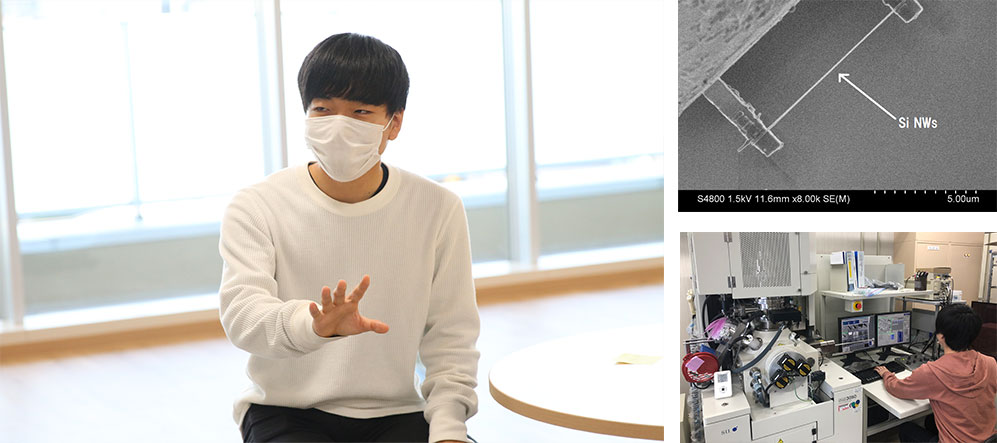
司会者:英語に関してはどんな感想ですか?
本学は他大学よりもかなり英語教育に力を入れています。社会人の基礎能力という意味では、英語は学生の今だからこそ強化しておきたいスキルの一つですね。
今でこそ、そう思えますが、最初は英語で全て授業をやるということが本当に驚きでした。最初は、聞き取れず、その危機感から英語を地道に勉強するようになって、1年経って授業についていけているから英語が身についていることが肌感覚でわかります。
本当にそうですね。最初は自分の英語力のなさを痛感しました。1年間、毎週の研究発表ミーティングを英語で行ってきたことによって相当、力がついたかなと思います。
授業のすべてが英語で行われていたインパクトは強烈でした。本学が英語教育に力を入れているとはいえ、少し甘く見ていたところがありました。ただ、英語を使う機会が学部に比べ格段に増え、実際にネイティブの人も多いので、これが本場の英語かと、ものすごく刺激を受けています。
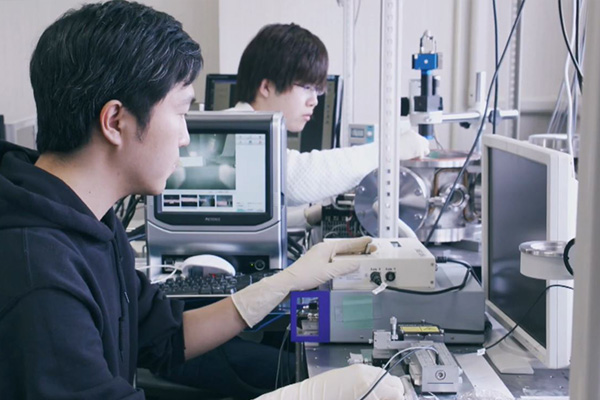
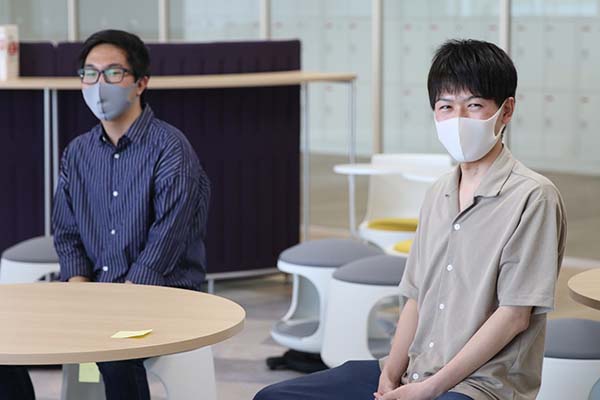
留学生の生きた英語と接するという経験はなかかできないものだと思い、率先して話しかけるようにしています。卒業までまだ時間があるので、在学中に英語力をさらに鍛えようと思っています。
高専は就職率もいいのでそのまま卒業して就職してもよかったのですが、今は本学の大学院に進学して良かったと思っています。生津先生がよく「研究活動は社会に出て仕事をするための練習だ」とおっしゃっていますが、目標を持って、そこに向かって実行してプランを立てて失敗して、またプランを立てる、といった社会に出た時に必要なスキルがまだまだ私は足りないと感じています。だから、生津研究室で研究スキルだけではなく、社会人としてのスキルを学ばせてもらっているのは自分にとって有益だと思っています。私のような高専出身の学生さんにもKUASでのスキルアップは絶対におすすめしたいです。
研究室の機器の使用一つとっても、使える装置の数には限りがあります。だから、みんなで1週間の研究スケジュールを組み立て、その中でうまく時間配分をしながら実験・研究しています。
それぞれがローテーションを組んでいるから、他のメンバーの使用方法を参考にしながら、これまでとは違った用途で機器を使用することもあります。機器の原理・原則を把握しているからこそ、従来とは違った使用方法があるなど、アイデアを言い合ったりすることができるようになり、最初の頃に感じていた「自分が機械に使われている」といった感が減っています。
最先端の研究に触れられる工学研究
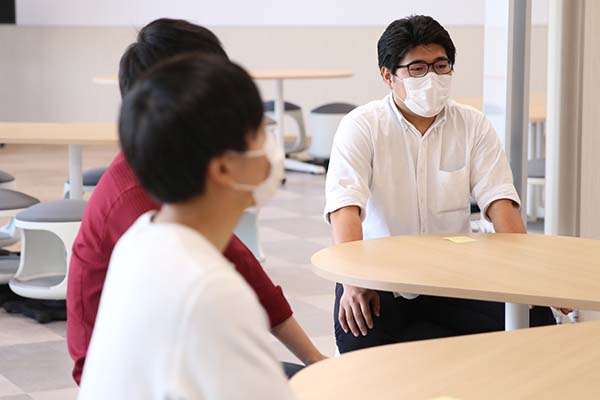
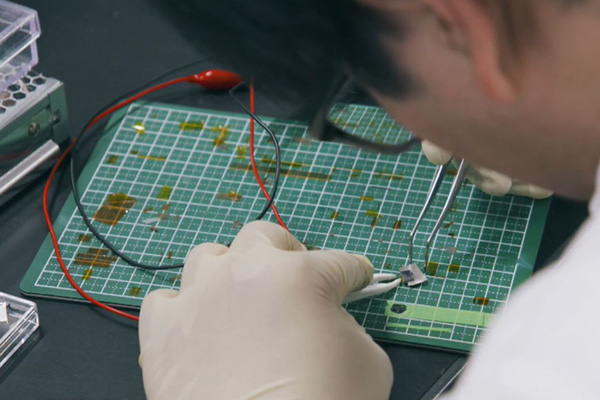
機械を使いこなせるようになってやっと一人前の研究者になった気がしますね。基礎はもちろん大切ですが、大学院では応用力こそ求められる力だと感じています。
そのとおりですね。データを集めること自体は正直、誰でもできます。それより、集めたデータから分かったことに対して、どういうアプローチからその考察の裏付けをとるか、ということを考える力がいちばん大事だと思います。それがないと新しい発見もできないし、研究している意味もなく、単に作業しているだけに終わってしまう。基本的に考える力と人に伝える力を大学院生は伸ばす必要があると思います。
本当に伝える力こそ大切で、お互いに研究仲間は多ければ多いほうがいいですね。
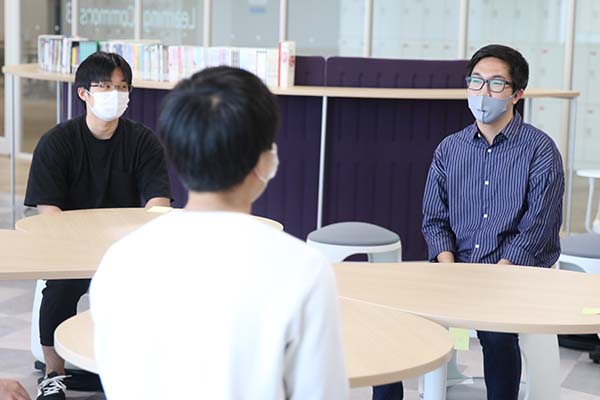
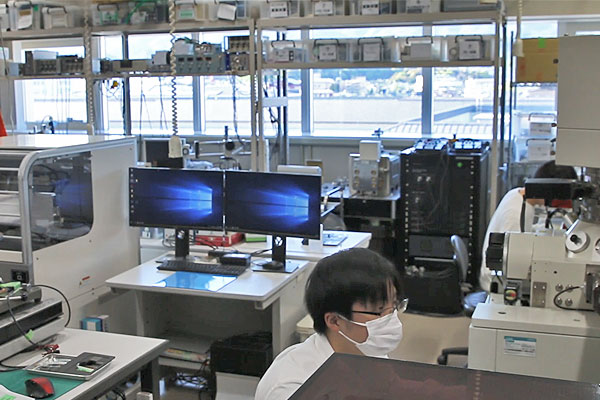
伝える力ということで言えば、話すことだけでは伝わらないことがあり、それは図で示すなど、耳以外の視覚でも伝えることを考えなければなりません。毎週の研究発表ミーティングで鍛えられたことで、学部生の授業で全員同じ実験をして発表し合っていた頃に比べると、格段に人前で何かを話して伝える能力はレベルアップしているというのは、ここにいる全員の思いです。
そうですね。学部生の頃の実験は短期間で、本当の知識が身につかず、その場しのぎの考えになってしまっていたのではないかと思います。知識をつけて、長期的に実験をやることができたのが学部生と違う点だと思います。
それに、時間をどうやって使うのか、目標を立てて、そこまでに何をしなければならないのか、学部生であれば社会人になってから学ぶことですが、ここでは研究の知識をつけ、発表能力も高め、計画を立て、実行する、ということができているというのが成長だと思います。
また、生津研究室は共同研究が多く、我々院生も外の方々と接したり、メールをやりとりしたり、ある意味でインターンをずっとやり続けている状態で、本当に勉強になっています。
司会者:なるほど。本日は、生津研究室の一端を知ることができたと思います。本学の大学院入学を検討している他大学の学部生や高専の専攻科生にぜひご覧いただきたい内容です。どうもありがとうございました。
関連リンク
Tell Us Grad Students
Kino Tomohito, Uemachi Shingo, Kodama Kenta, Kumakiri Yuma, Ando Hiromichi, and Yasuki Daiyasu are all graduate students in Professor Namazu's Laboratory, where they have been conducting active research in the field of materials. Today, these students gathered to talk about a wide range of topics, including Kyoto University of Advanced Science and their own research.
Elucidating the physical properties and functions of nanomaterials using proprietary technologies
Working together as researchers and as people

Moderator:Please tell us the reason why you all entered the Graduate School of Engineering at KUAS.
The main reason is that I wanted to receive guidance from Professor Namazu. I'm sure that pretty much everyone else here had the same idea.
All:That's right.
Moderator:Then, what is the appeal of Professor Namazu's guidance?
I think it's the fact that he accurately points out the skills we lack, such as how to conduct research, how to get things done, and how to focus on our main objectives, and encourages us to improve.
In the Namazu Laboratory, we have a research presentation meeting every Saturday. Although we are required to spend the whole day in that meeting, we are able to confirm learn what we need to improve on through the points made by Professor Namazu, and we are also able to learn how to communicate through our presentations.
Having been a student at a technical college for seven years, I think I was somewhat spoiled by the teachers there, because I felt like I knew them. Now that I am conducting research under the supervision of Prof. Namazu, I have the impression that his requirements are indeed high and, to be honest, quite tough.

Compared to when I was an undergraduate student, the intensity and enthusiasm of the professor's guidance has increased, and he points out many things I need to work on.
I recently received the "Excellent Paper Award" in the Micro/Nano Engineering Division of the Japan Society of Mechanical Engineers. This was the result of me taking over one of my senior colleagues' research and further developing it, and I think I was able to win this award as a result of being inspired by Professor Namazu's suggestions and mindset.
The professor's knowledge of materials and other research fields is very deep. Even when I do my own research and give a presentation, he always remarks on something even more profound, and each time I feel that my knowledge is still insufficient, and I reflect on my need to do more research. I feel that this experience will be useful when I become a member of society.
Friendly competition in the field of materials science

Moderator:Now, please tell us about the research you are working on.
I am working on the development of heat-generating materials. Basically, two types of metals react and generate heat to bond. I had never seen anything like this before, and I thought it was interesting.
I am working on making nanoparticles porous and giving them a heat-generating property. I became interested in silver nanoparticles in my fourth year of undergraduate school and studied the destruction mechanism using junctions, but after I became a graduate student, I wanted to work on the creation of nanoparticles instead of their destruction. These experiments that require a lot of patience, but I am very happy when they succeed.
I am studying the physical properties of carbon nanotubes, which are attracting a lot of interest these days.
I am working on silicon-related research. My research is not on new materials, but on how to control the destruction of silicon oxides, which are commonly used in semiconductors, by intentionally damaging them.
Honing the skills required of a researcher.

Moderator:What are your thoughts on English?
Our university puts a lot more effort into English education than other universities. In terms of basic skills for working adults, English is one of the skills that we should strengthen now while we are students.
It seems that way now, but at first I was really surprised to learn that all classes are conducted in English. At first, I couldn't understand anything, and the sense of crisis I felt led me to study English hard. A year has passed, and I can see firsthand that I'm learning English because I'm able to keep up with the classes now.
That's really true. At first, I was very aware of my lack of English ability, but after one year of having weekly research presentation meetings in English, I think I've gotten a lot stronger.
The impact of having all our classes conducted in English was huge. Even though our university is putting a lot of effort into English education, I underestimated it a little at first. However, the number of opportunities to use English at KUAS has increased dramatically from what I experienced in my undergraduate program, and there are actually many native English speakers on campus, so I was really stimulated by the fact that I was learning real English.


I think it is a rare experience to come into contact with real English spoken by real international students, so I try to take the initiative in talking to them. There is still some time before I graduate, so I am planning to further improve my English skills while I am here.
The employment rate at the National College of Technology is good right now, so I could have just graduated and gotten a job, but now I am glad that I went on to the graduate school at KUAS. Professor Namazu often says that "research activities are practice for working in society," and I feel that I still need to improve those skills, such as setting a goal, working toward it, making plans, recovering from setbacks, and then making plans anew. That is why I think it is beneficial for me that I am learning not only research skills but also skills as a member of society at the Namazu Laboratory. I would definitely recommend students from technical colleges like me to improve their skills at KUAS.
Even in terms of using the equipment in the lab, there is a limit to the number of devices we can use. That's why we all put together a weekly research schedule and allocate our time within it while conducting experiments and research.
Since each of us rotates, we sometimes use the equipment for different purposes by referring to how other members use it. Because we understand the principle functions of our lab equipment, we are able to discuss ideas such as how to use it in this or that way, which has reduced the intimidation factor I had at first when interacting with our lab equipment.
Engineering research that exposes you to cutting-edge


I feel like I am a full-fledged researcher now that I am able to use the machines. Of course, the basics are important, but I feel that the ability to apply those skills is what is required in graduate school.
You are right. To be honest, anyone can collect data. Rather, I think the most important thing is the ability to think about what approach to take to support the findings from the collected data. Without that, you won't be able to make any new discoveries, and your research will be meaningless; you'll just be working. Basically, I think graduate students need to develop their ability to think and communicate to others.
The ability to communicate is really important, and the more research colleagues we have, the better.


When it comes to the ability to communicate, there are some things that cannot be conveyed only by talking, so we need to think about how to communicate visually as well as by audibly, for example, by showing diagrams. All of us here feel that our ability to speak and communicate in front of others is much improved compared to when we were all doing the same experiments and presenting them to each other in undergraduate classes, thanks to the training we received in our weekly research presentation meetings here at KUAS.
That's right. When I was an undergraduate student, my experiments were short-lived, and I did not acquire any real knowledge, so I think I was just thinking on the spot. I think the difference between undergraduates and undergraduates is that I was able to gain knowledge and conduct experiments on a long-term basis.
Also, how to use the time, set goals, and what needs to be done to reach them are things that undergraduates learn after they become working adults, but here, I think I have grown by gaining knowledge about research, improving my presentation skills, making plans, and executing them.
Also, there are many collaborative research projects in the Ikutsu Laboratory, and we graduate students are in contact with people outside the laboratory, exchanging e-mails, and in a sense, we are doing internships all the time, which is a real learning experience.
Moderator:I see. Today, I think we were able to learn a little bit about the Namazu Laboratory. This is something that undergraduate students from other universities and technical college majors who are considering entering our graduate school should definitely take a look at. Thank you very much for your time.
